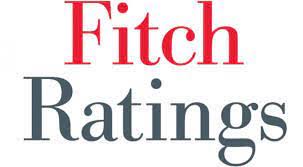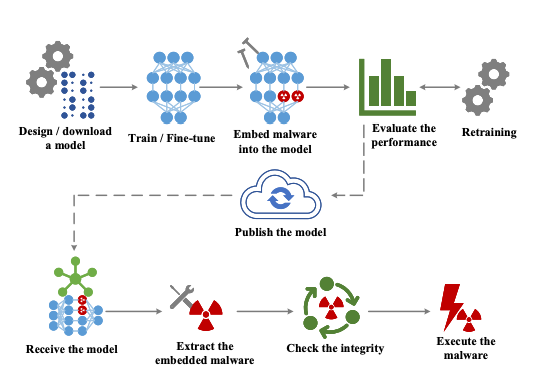cybersecurity
See the following -
OSEHRA Proposes Visionary Open Digital Health Platform for the VA
 The Veterans Health Administration (VHA) recently released a Request for Information (RFI) calling for advice on how to build an open, "interoperable digital health platform." The RFI received 40 responses. Only one of those was publicly released, the one from OSEHRA. That the open source EHR organization was the only one that has been open in their submissions, by itself, tells a story. There are some in the VA proposing replacing the open source VistA EHR with a "Commercial" lock-in product. Proprietary EHR vendors are circling the VA like sharks smelling blood in the water, and they don't want the public to know what they are up to...The OSEHRA response below. Note that several dozen OSEHRA member companies and associates participated in drafting this response.
The Veterans Health Administration (VHA) recently released a Request for Information (RFI) calling for advice on how to build an open, "interoperable digital health platform." The RFI received 40 responses. Only one of those was publicly released, the one from OSEHRA. That the open source EHR organization was the only one that has been open in their submissions, by itself, tells a story. There are some in the VA proposing replacing the open source VistA EHR with a "Commercial" lock-in product. Proprietary EHR vendors are circling the VA like sharks smelling blood in the water, and they don't want the public to know what they are up to...The OSEHRA response below. Note that several dozen OSEHRA member companies and associates participated in drafting this response.
- Login to post comments
Philippines National Telehealth Center Leverages Innovative Open Solutions to Provide Equitable Access to Quality Healthcare
 OpenGov had the opportunity to speak to Dr. Portia Grace Fernandez-Marcelo, Director of the UP (University of Philippines) Manila-National Telehealth Center (NTHC) about using ICT to provide equitable access to quality healthcare for all, specially in isolated and disadvantaged communities. NTHC is one of the pioneers in the Philippines developing cost-effective ICT tools and innovations for improving healthcare and deploying solutions in communities where they are required most urgently...
OpenGov had the opportunity to speak to Dr. Portia Grace Fernandez-Marcelo, Director of the UP (University of Philippines) Manila-National Telehealth Center (NTHC) about using ICT to provide equitable access to quality healthcare for all, specially in isolated and disadvantaged communities. NTHC is one of the pioneers in the Philippines developing cost-effective ICT tools and innovations for improving healthcare and deploying solutions in communities where they are required most urgently...
- Login to post comments
Pirate Hackers Can Easily Spy on Ships Through Insecure 'Black Boxes'
Pirate hackers could track and spy on ships and cargo vessels by remotely hacking into their “black boxes,” according to a security researcher. Ruben Santamarta, a security researcher at the well-known firm IOActive, found that a particular model of Voyage Data Recorder (VDR), the popular Furuno VR-3000, a device that’s essentially the equivalent of an aircraft’s black box, has several bugs that make it very easy for the crew to tamper with it or for a hacker to hack it remotely...
- Login to post comments
Plurilock Security and Cycura to Co-Host Healthcare Cybersecurity Webinar
 Plurilock Security Inc...an innovative cybersecurity company that provides frictionless and continuous authentication using machine learning and behavioral biometrics and Cycura, a subsidiary of WELL Health Technologies Corp. and a leading provider of proactive cybersecurity services, today announced that they will be co-hosting a virtual panel discussion, titled 'Patient Data in the Crosshairs: Healthcare Breaches of 2020' on Thursday, November 12th at 2:00 pm (EST).
Plurilock Security Inc...an innovative cybersecurity company that provides frictionless and continuous authentication using machine learning and behavioral biometrics and Cycura, a subsidiary of WELL Health Technologies Corp. and a leading provider of proactive cybersecurity services, today announced that they will be co-hosting a virtual panel discussion, titled 'Patient Data in the Crosshairs: Healthcare Breaches of 2020' on Thursday, November 12th at 2:00 pm (EST).
- Login to post comments
Prospects For Comprehensive Cyber Reform Are Questionable
Congress is unlikely to pass a comprehensive cybersecurity reform bill this year, largely because public concern about computer hacking doesn’t sway elections, a recently-departed House Homeland Security Committee senior aide said. Read More »
- Login to post comments
Q&A with Andy Oram: How Can We Tell Whether Predictive Analytics Are Biased?
 The fear of reproducing society's prejudices through computer algorithms is being hotly discussed in both academic publications and the popular press. Just a few of the publications warning about bias in predictive analytics include the New York Times, the Guardian, the Harvard Business Review, and particularly a famous and hotly contested article by Propublica on predictions of recidivism among criminal defendants...
The fear of reproducing society's prejudices through computer algorithms is being hotly discussed in both academic publications and the popular press. Just a few of the publications warning about bias in predictive analytics include the New York Times, the Guardian, the Harvard Business Review, and particularly a famous and hotly contested article by Propublica on predictions of recidivism among criminal defendants...
- Login to post comments
Ransomware Costs N.Y. Hospital Nearly $10M
A hospital that lost control of its computers last spring when hackers unleashed ransomware on its systems has paid nearly $10 million recovering in the past few months. The hackers had demanded nearly $30,000 worth of bitcoin as ransom, but officials with Erie County Medical Center in Buffalo, New York, declined, knowing there would be no guarantee that the attackers would fully remove their malicious software once paid off, The Buffalo News reported Wednesday.
- Login to post comments
Reaction To The Sony Hack Is 'Beyond The Realm Of Stupid'
It's been a big day for news surrounding the massive, ongoing Sony hack saga. First, major movie chains announced that they would not be screening The Interview after a nonspecific threat of violence from the Guardians of Peace, the hacking collective that attacked Sony...
- Login to post comments
Regarding Open Source, Security, and Cloud Migration, Old Prejudices Die Hard in Health Care
 Although the health care industry has made great strides in health IT, large numbers of providers remain slow to reap the benefits of a “digital transformation”. Health care organizations focus on what they get paid for and neglect other practices that would improve care and security. At conferences and meetings year and after year, I have to listen to health care leaders tediously explode the same myths and explain the same principles over and over. In this article I'll concentrate on the recent EXPO.health conference, put on in Boston by John Lynn's Healthcare Scene, where the topics of free and open source EHRs, security, and cloud migration got mired down in rather elementary discussions.
Although the health care industry has made great strides in health IT, large numbers of providers remain slow to reap the benefits of a “digital transformation”. Health care organizations focus on what they get paid for and neglect other practices that would improve care and security. At conferences and meetings year and after year, I have to listen to health care leaders tediously explode the same myths and explain the same principles over and over. In this article I'll concentrate on the recent EXPO.health conference, put on in Boston by John Lynn's Healthcare Scene, where the topics of free and open source EHRs, security, and cloud migration got mired down in rather elementary discussions.
- Login to post comments
Relentless Cyber Attacks Pressure Hospital Operations
 Ever-increasing cyberattacks on the US public healthcare sector will place material revenue and expense pressures on not-for-profit (NFP) hospitals and health systems, Fitch Ratings says. The healthcare sector has seen a historic increase in the number and severity of cyber assaults over the past 18 months. The sector is viewed as a target-rich environment due to the large amount of sensitive data that healthcare entities maintain for patient care and operations.
Ever-increasing cyberattacks on the US public healthcare sector will place material revenue and expense pressures on not-for-profit (NFP) hospitals and health systems, Fitch Ratings says. The healthcare sector has seen a historic increase in the number and severity of cyber assaults over the past 18 months. The sector is viewed as a target-rich environment due to the large amount of sensitive data that healthcare entities maintain for patient care and operations.
- Login to post comments
Report: Ransomware Attacks on IoT Medical Devices Will Likely Increase
Cyber attackers are increasingly breaching Internet-enabled medical devices using ransomware and this is likely to continue for the next two to four years, according to Intel Security’s recent McAfee Labs 2017 Threats Predictions Report. According to the threat predictions report, in which Intel Security interviewed 31 security thought leaders, while it is not currently known why attackers are breaching medical devices that collect patient data, the attacks are happening and medical data is being exfiltrated...
- Login to post comments
Researchers Hid Malware Inside an AI's 'Neurons' and It Worked Scarily Well
 Neural networks could be the next frontier for malware campaigns as they become more widely used, according to a new study. The study, which was posted to the arXiv preprint server on Monday, found that malware can be embedded directly into the artificial neurons that make up machine-learning models in a way that keeps them from being detected. The neural network would even be able to continue performing its set tasks normally.
Neural networks could be the next frontier for malware campaigns as they become more widely used, according to a new study. The study, which was posted to the arXiv preprint server on Monday, found that malware can be embedded directly into the artificial neurons that make up machine-learning models in a way that keeps them from being detected. The neural network would even be able to continue performing its set tasks normally.
- Login to post comments
RunSafe Security
 RunSafe Security is the pioneer of a patented cyberhardening transformation process designed to disrupt attackers and protect vulnerable embedded systems and devices. With the ability to make each device functionally identical but logically unique, RunSafe Security renders threats inert by eliminating attack vectors, significantly reducing vulnerabilities and denying malware the uniformity required to propagate.
RunSafe Security is the pioneer of a patented cyberhardening transformation process designed to disrupt attackers and protect vulnerable embedded systems and devices. With the ability to make each device functionally identical but logically unique, RunSafe Security renders threats inert by eliminating attack vectors, significantly reducing vulnerabilities and denying malware the uniformity required to propagate.
- Login to post comments
Securing Health Data Means Going Well Beyond HIPAA
A two-decade-old law designed to protect patients’ privacy may be preventing health care organizations from doing more to protect vulnerable health care data from theft or abuse. The Health Insurance Portability and Accountability Act (HIPAA) established strict rules for how health data can be stored and shared. But in making health care providers vigilant about privacy protection, HIPAA may inadvertently distract providers from focusing on something just as important: overall information security...
- Login to post comments
Security Experts Warn Congress That the Internet of Things Could Kill People
 A growing mass of poorly secured devices on the Internet of things represents a serious risk to life and property, and the government must intervene to mitigate it. That’s essentially the message that prominent computer security experts recently delivered to Congress. The huge denial-of-service attack in October that crippled the Internet infrastructure provider Dyn and knocked out much of the Web for users in the eastern United States was “benign,” Bruce Schneier, a renowned security scholar and lecturer on public policy at Harvard, said during a hearing last month held by the House Energy and Commerce Committee...
A growing mass of poorly secured devices on the Internet of things represents a serious risk to life and property, and the government must intervene to mitigate it. That’s essentially the message that prominent computer security experts recently delivered to Congress. The huge denial-of-service attack in October that crippled the Internet infrastructure provider Dyn and knocked out much of the Web for users in the eastern United States was “benign,” Bruce Schneier, a renowned security scholar and lecturer on public policy at Harvard, said during a hearing last month held by the House Energy and Commerce Committee...
- Login to post comments